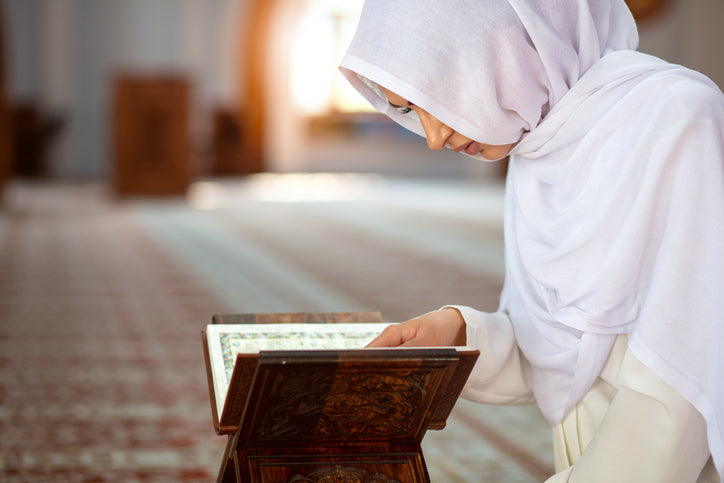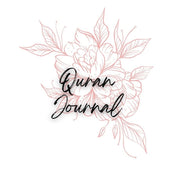Key Takeaways:
- Foundation of the Quran: Surah Al-Fatiha encapsulates the key messages and themes of the Quran, making it essential for understanding the entire book.
- Central to Worship: This surah is integral to Muslim daily prayers, emphasizing its importance in spiritual practice and connection with Allah.
- Guidance and Comfort: Surah Al-Fatiha serves as a supplication for guidance, mercy, and help from Allah, offering spiritual and psychological solace to believers.
Pearls Of The Quran
Surah Al-Fatiha, also known as "The Opening" or "The Essence of the Book," is the first chapter of the Quran and holds significant importance in Islam for several reasons:
-
Key to Understanding the Quran: Surah Al-Fatiha is considered the foundation of the Quran, as it encapsulates the key messages and themes of the Quran in its seven verses. It serves as an introduction to the entire book and sets the stage for the rest of the Quran's teachings.
-
Central to Daily Prayers: Surah Al-Fatiha is an integral part of the Muslim prayer (Salah) and is recited in every unit (rak'ah) of the prayer. Its recitation is essential for the validity of the prayer, making it a central aspect of a Muslim's daily worship.
-
Guidance and Supplication: The chapter serves as a supplication for guidance, mercy, and help from Allah. It expresses reliance on Allah, asking for His guidance on the straight path, and for forgiveness and mercy. It also acknowledges Allah's sovereignty and mercy.
-
Universal Appeal: The themes and messages of Surah Al-Fatiha are universally relevant, regardless of culture or background. It emphasizes the importance of worshiping Allah alone, seeking His guidance, and striving to follow the righteous path.
-
Names and Attributes of Allah: The surah begins by praising Allah with His most significant names and attributes, such as "Lord of all the worlds," "The Most Compassionate, the Most Merciful," and "Master of the Day of Judgment." This reinforces the understanding of Allah's greatness and His mercy.
-
Connection with Allah: Reciting Surah Al-Fatiha allows believers to establish a direct connection with Allah. It is a dialogue between the worshipper and Allah, where the worshipper expresses their needs and reliance on Him.
-
Spiritual and Psychological Benefits: Regular recitation of Surah Al-Fatiha can provide spiritual and psychological comfort and tranquility. Its words are a source of solace and guidance for believers facing challenges or seeking peace.
In summary, Surah Al-Fatiha holds a central place in Islamic worship and spirituality. Its recitation connects believers with Allah, serves as a comprehensive prayer for guidance, and provides a concise overview of the core messages of the Quran.
Frequently Asked Questions:
Q: Why is Surah Al-Fatiha called "The Opening"?
A: Surah Al-Fatiha is called "The Opening" because it is the first chapter of the Quran and serves as an introduction to its themes and messages. It encapsulates the essence of the Quran in its seven verses, making it foundational to Islamic teachings.
Q: How is Surah Al-Fatiha used in daily prayers?
A: Surah Al-Fatiha is recited in every unit (rak'ah) of the Muslim prayer (Salah). Its recitation is mandatory for the validity of the prayer, making it a central component of daily worship and a means of connecting with Allah.
Q: What are the spiritual benefits of reciting Surah Al-Fatiha?
A: Reciting Surah Al-Fatiha offers spiritual benefits such as guidance, mercy, and a sense of peace. It helps believers establish a direct connection with Allah, seek His help, and find comfort in His words during challenging times.
Q: What themes are emphasized in Surah Al-Fatiha?
A: Surah Al-Fatiha emphasizes themes such as the sovereignty and mercy of Allah, the importance of worshiping Him alone, seeking His guidance, and following the righteous path. It is a comprehensive prayer that addresses the core aspects of a believer’s relationship with Allah.
Q: Why is Surah Al-Fatiha considered universal in its appeal?
A: Surah Al-Fatiha is considered universal because its messages of seeking guidance, worshiping Allah alone, and striving for righteousness are relevant to all people, regardless of their cultural or social background. It speaks to the fundamental aspects of human existence and spiritual needs.












